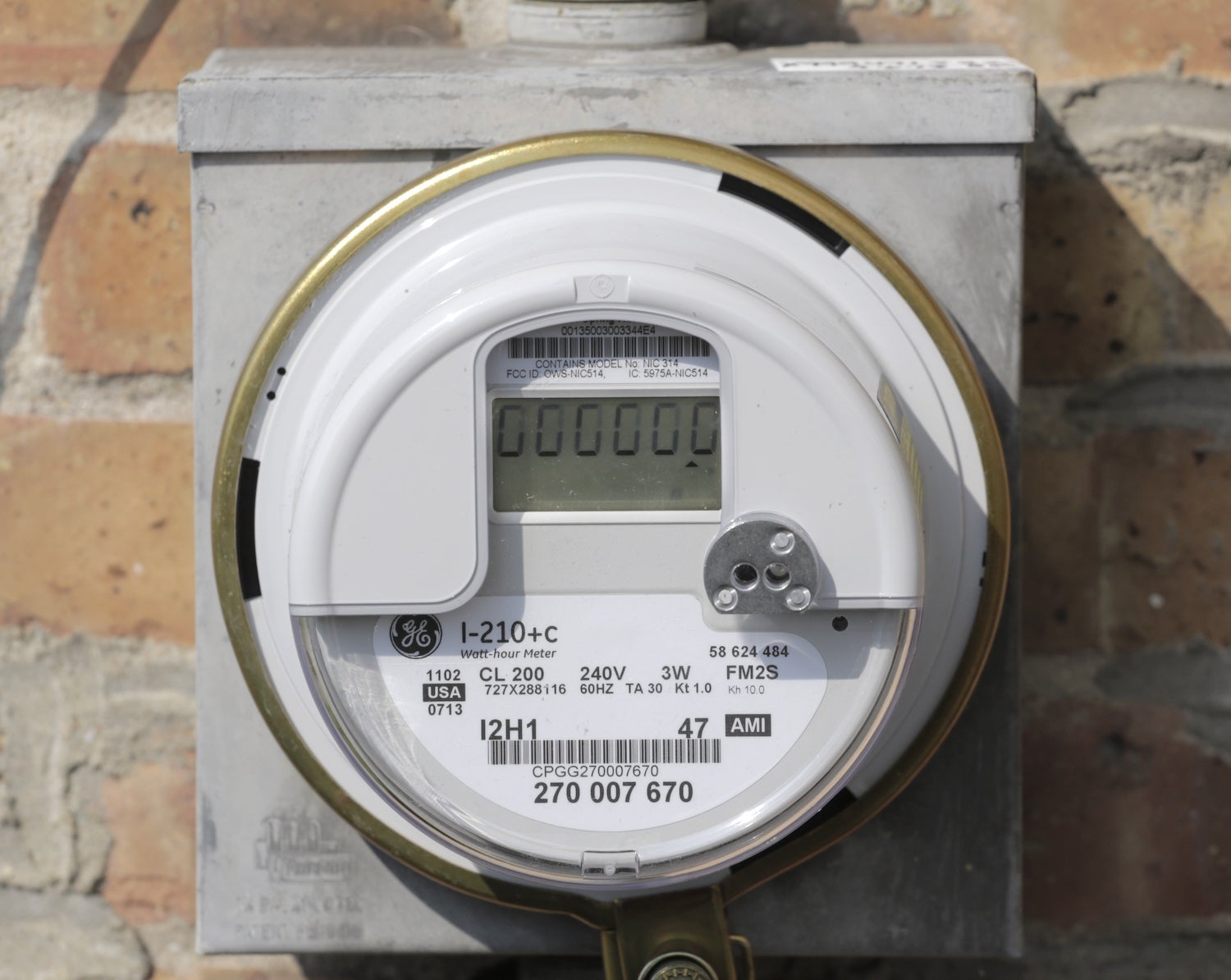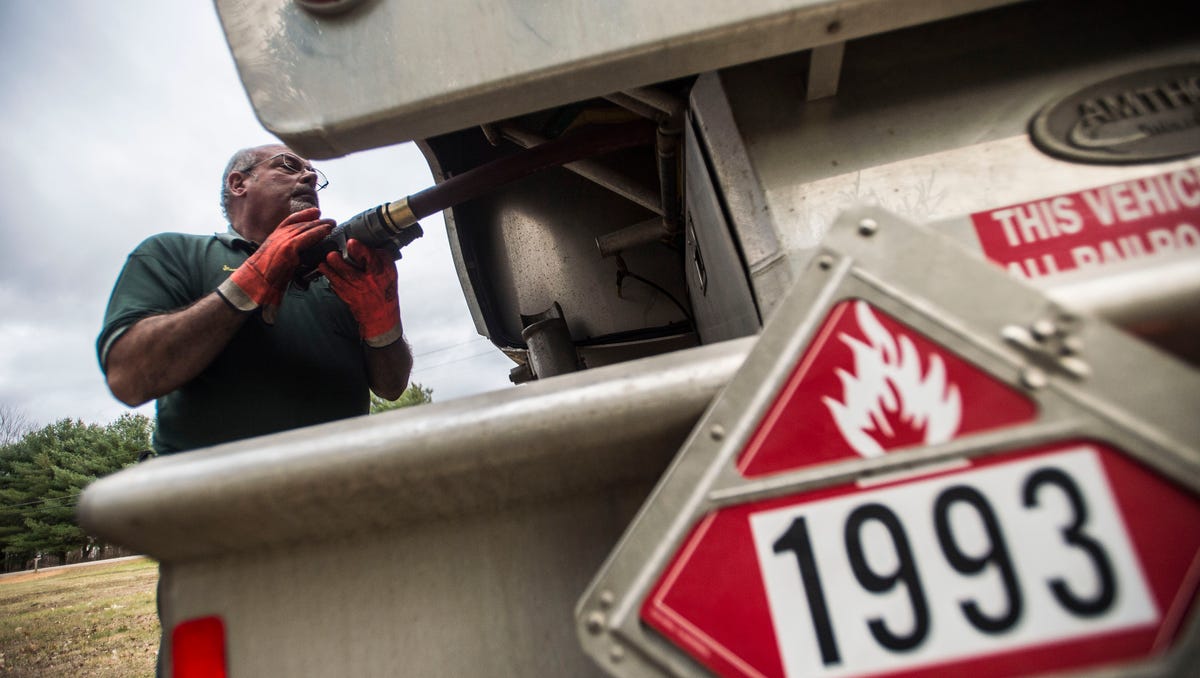Pennsylvania
Struggling to pay your heating bill in Pa.? This program could help

Crisis grants are for households that are at immediate risk of losing heat — for example, because of a looming utility shutoff, a lack of fuel, or a broken heater. Crisis grants range from $25 to $1,000.
“You can apply for both at the same time,” Hughes said.
In its Fiscal Year 2024 LIHEAP plan submitted to the U.S. Department of Health and Human Services, the state of Pennsylvania estimated that over 254,000 Pa. households could receive cash grants and more than 113,000 households could receive crisis assistance this winter.
Pennsylvania’s LIHEAP program opened for applications November 1, and will close in early April 2024.
Who qualifies?
Both renters and homeowners can qualify for LIHEAP.
A household needs to earn no more than 150% of the federal poverty line — or $21,870 for an individual and $45,000 for a family of four.
Hughes recommends applying even if you’re not sure whether you qualify.
“There are people who never applied for it before, and they may not know of the program,” she said. “Others have worked all their lives and have tried applying for LIHEAP but [were] always over income, so they don’t even try … You have a lot of college students who believe that because they are in college they can’t get it — and they can.”
How can you apply?
Pennsylvanians can apply for LIHEAP online or in person.
To apply online, use the state’s centralized benefit portal, COMPASS.
To apply in person, visit your local county assistance office. Philadelphia has several of these offices, in addition to more than a dozen neighborhood energy centers which can help you understand your options and apply.
Neighborhood energy centers will require an ID, proof of any income from the previous month, social security cards for all household members, and a utility bill, Hughes said.
To ask questions or request an application, call the state’s LIHEAP hotline at 1-866-857-7095 (for 24-hour assistance with crisis situations, try calling your local county assistance office.)
After you submit your application, state officials say you should allow up to 30 days for a response.
“Apply no matter what,” Hughes said. “It is so needed.”

Pennsylvania
Criminal charges for climate pollution? Some argue a Pa. law would apply

While Braman agrees it would be difficult to take on as a prosecutor, he said that could change as more young people move into positions of influence.
“As the catastrophes escalate and as young people who face their entire future in an environment dominated by increasing climate harms, [and] start to join the jury pool, start to become prosecutors, start to become judges and start to become shareholders, I think that the writing’s on the wall,” Braman said, “and I hope that everybody, including everyone inside fossil fuel companies, starts to pay attention to that.”
But Weber said prosecutors would still have to convince a judge or jury to convict beyond a reasonable doubt.
Fossil fuel companies have permits to conduct their business, essentially government permission to do what they are doing, another way for the company to defend itself in court.
If the companies are charged and convicted of risking or causing a catastrophe, the fines are in the range of $15,000 to $25,000 per count, Weber said.
“Is that going to deter a multimillion dollar company? Is that going to interfere with the operation of their business and the money that they’re making? I don’t think so,” Weber said. “I mean, did Energy Transfer go out of business by that criminal prosecution?”
“Maybe you put the CEO in jail,” Weber said. “And do you think that the other fossil fuel companies are going to say, ‘That guy went to jail, so we shouldn’t do what we’re doing anymore’? No, they’re going to do what drug dealers do. Drug dealers say, ‘Well, that guy got caught for drug dealing because he’s stupid. We’re not stupid.’”
‘Win by losing’
Environmental attorney Rich Raiders said there are a lot of questions with the strategy, but says the article does serve an important purpose.
“The idea behind these articles isn’t necessarily to come to an answer, but to get people to start thinking about how to address a question. And in that respect, it does that and it does it well,” Raiders said.
Raiders represented homeowners who sued Energy Transfer over the Mariner East pipeline construction. He said a case like this would be a battle of the experts, but there are fundamental questions the article does not address about whether the charges would stick.
“What do you have to show responsible for climate change to meet the definition of a catastrophe?” Raiders said. “What is that level of threshold that you have to show before you can write a complaint that actually can survive objections? And how do you prove that it was the fossil fuel emissions caused by the marketing aspects of these companies to get you far enough that you can meet this definition? We don’t know.”
Raiders said the goal of this type of prosecution could be to get a large settlement, similar to what happened with the tobacco companies settlement or a previously proposed Sackler family settlement over opioids.
In that case, it makes sense to bring a case where you “win by losing.”
“And maybe that’s what a case like this does. It’s not necessarily to win the case, but it’s to move the needle,” Raiders said.
For example, he said it could get the legislature to take action. But it also requires someone willing to lose.
“I think this is an interesting discussion in the long term for how to get people to think about the problem,” Raiders said. “And as a thought piece it does have some merit. But will you see something like that filed in the next 12 months? No, not anytime soon.”
Braman, one of the co-authors of the piece, is more optimistic.
“We desperately need some kind of solution that will allow the public to hold these massive corporate criminal actors accountable and have them really address the harms that they’re generating,” he said.
Pennsylvania
Cash reward offered for information leading to Pennsylvania cold case homicide resolution

LEBANON COUNTY, Pa. (WHTM) — A cash reward is being offered for anyone who has information surrounding a 2021 cold case homicide in Lebanon County.
The $2,000 reward is for anyone who has information that can solve the case of the death of 35-year-old Zachary Lauderman, according to State Police.
Lauderman was found dead with two gunshot wounds to his head in his home, located along Ulsh lane in Bethel Township Sept. 10 just before 3 p.m., according to Troopers.
Anyone who knows something is asked to contact PSP Tips at 1-800-4PA-TIPS (8477), or they can go online to submit a tip by clicking here.
Pennsylvania
Philadelphia Auto Show begins this weekend at the Pennsylvania Convention Center

PHILADELPHIA (WPVI) — The Philadelphia Auto Show is about to get underway at the Pennsylvania Convention Center.
It kicks off this weekend, but on Thursday Mayor Cherelle Parker and auto show executives gave us a preview of all the fun.
Organizers say this will be one of the largest shows in its 123-year history.
Car enthusiasts will get a chance to see the latest lineup from manufacturers around the globe.
“With more manufacturers, the longest track, Camp Jeep back on display… there truly is something for everyone,” said Jeff Glanzmann of Glanzmann Subaru.
That also includes classic cars and Hollywood rides from favorite films and shows, all of which will be showcased on the 600,000 square foot exhibit floor.
The Auto Show opens to the public on Saturday and runs until Jan. 20.
6abc is a proud sponsor.
Don’t miss our Philadelphia Auto Show special, which airs Saturday at 7 p.m.
For tickets and more information, visit this page on 6abc.com.
Copyright © 2025 WPVI-TV. All Rights Reserved.
-

 Business1 week ago
Business1 week agoThese are the top 7 issues facing the struggling restaurant industry in 2025
-

 Culture1 week ago
Culture1 week agoThe 25 worst losses in college football history, including Baylor’s 2024 entry at Colorado
-

 Sports1 week ago
Sports1 week agoThe top out-of-contract players available as free transfers: Kimmich, De Bruyne, Van Dijk…
-

 Politics1 week ago
Politics1 week agoNew Orleans attacker had 'remote detonator' for explosives in French Quarter, Biden says
-

 Politics1 week ago
Politics1 week agoCarter's judicial picks reshaped the federal bench across the country
-

 Politics6 days ago
Politics6 days agoWho Are the Recipients of the Presidential Medal of Freedom?
-

 Health5 days ago
Health5 days agoOzempic ‘microdosing’ is the new weight-loss trend: Should you try it?
-

 World1 week ago
World1 week agoIvory Coast says French troops to leave country after decades









/cdn.vox-cdn.com/uploads/chorus_asset/file/23935560/acastro_STK103__03.jpg)









